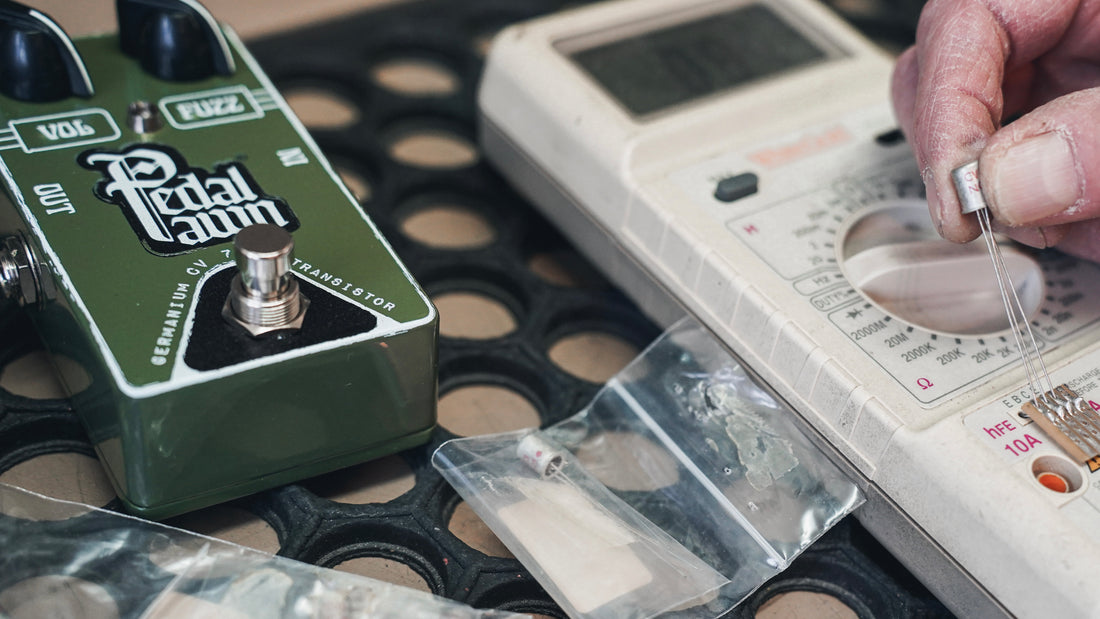Fuzz pedals are a popular type of guitar effects pedal that use transistor technology to produce a distorted, fuzzy sound. Silicon and germanium transistors are two common types of transistors used in fuzz pedals, and they have distinct differences that affect the tone and performance of the pedal. In this blog post, we will explore these differences in more detail.
What is a Transistor?
Transistors are electronic devices that can amplify and switch electronic signals. In a fuzz pedal, they are used to amplify the guitar's signal and then clip the waveform, creating a distorted and fuzzy sound. Silicon and germanium are two materials commonly used to make transistors, and they have different properties that affect their performance.
Silicon
Silicon transistors are more commonly used in modern fuzz pedals, and they have a high gain and a tighter, more controlled distortion. Silicon transistors can handle high levels of current and voltage, making them suitable for high-gain and high-output applications. They also have a wider frequency response, which means they can produce a more extended range of tones.
Here's a sound example with our Pedal Pawn Fuzz (SILICON)
Germanium
On the other hand, germanium transistors are an older technology and are known for producing a warmer, smoother, and more organic distortion. Germanium transistors have a lower gain and are more sensitive to temperature and voltage changes. This can make them unpredictable, but it also gives them a more dynamic and expressive character. Germanium transistors also have a more limited frequency response, which can result in a more vintage or retro sound.
Here's a sound example with our Pedal Pawn Fuzz (GERMANIUM)
Clean-Up
In addition to the differences in their distortion characteristics, silicon and germanium transistors also interact differently with a guitar's volume knob when it comes to clean up. As a general rule, silicon transistors have a more glassy clean up, while germanium transistors are a bit more woody. This means that when you roll off your guitar's volume knob with a fuzz pedal that uses silicon transistors, the distortion will clean up in a more transparent and clear way, whereas with a fuzz pedal that uses germanium transistors, the clean up will have a warmer, more organic character. This can be a significant factor to consider when choosing between silicon and germanium transistors for a fuzz pedal, depending on the type of tone and playing style you prefer.
Power Supply
One important consideration when choosing between silicon and germanium transistors for a fuzz pedal is the power supply. Germanium transistors are more sensitive to voltage changes, and this is one of the reasons that batteries are often recommended for pedals of this nature.
Summary
In summary, silicon and germanium transistors have distinct differences that affect their performance in fuzz pedals. Silicon transistors are more commonly used in modern pedals and offer a tighter, more controlled distortion with a wider frequency response. Germanium transistors, on the other hand, are known for producing a warmer, more organic distortion with a more limited frequency response. When choosing between silicon and germanium transistors for a fuzz pedal, it is important to consider the desired tone and performance characteristics you're trying to achieve.

